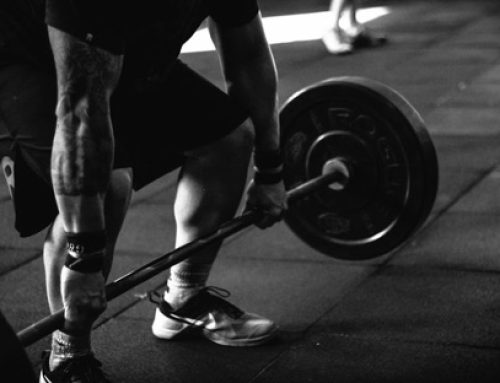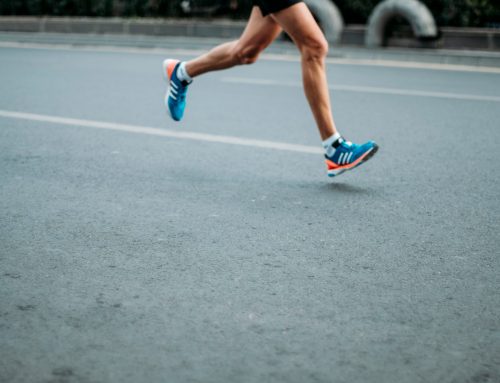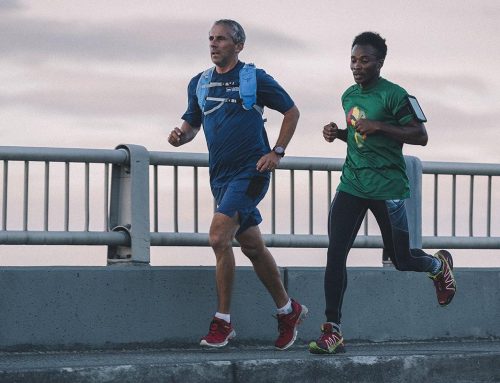Ready to pump some iron on an empty stomach? Don’t worry, you won’t faint like a damsel in distress at a chivalrous knight’s feet. Instead, science has shown that weightlifting while fasted could help you maximize gains. So put down that bagel, grab your dumbbells, and let’s get swole-er!
Contents
- 1 1. The Benefits of Fasted Weight Lifting: Boosting Metabolism and Maximizing Gains
- 2 2. The Science Behind Fasted Workouts: How It Affects Muscle Growth and Fat Loss
- 3 3. Fueling Your Body for Optimal Performance: Pre-Workout Meals and Hydration Tips
- 4 4. Performance-Enhancing Supplements for Fasted Weight Lifting: What to Try and What to Avoid
- 5 5. Fasted Lifting with Intermittent Fasting: Tips for Combining Two Powerful Techniques
- 6 Don’t Forget to Refuel
1. The Benefits of Fasted Weight Lifting: Boosting Metabolism and Maximizing Gains
Have you ever tried fasting before hitting the gym? If not, you’re missing out on some serious gains. Not only does fasted weight lifting boost your metabolism, but it also maximizes your workout results. Here’s why:
- By training in a fasted state, your body has no choice but to burn fat for fuel. This means you’ll get leaner and meaner in no time.
- When you lift weights in a fasted state, you stimulate the production of growth hormone, which helps increase lean muscle mass and reduce body fat.
- Research has shown that fasted weight lifting can increase the body’s insulin sensitivity, which means you’re less likely to store excess carbs as fat.
But let’s be real, the best benefit of fasted weightlifting is that it gives you an excuse to skip breakfast. Who needs food when you can have gains, am I right?
Of course, fasting isn’t for everyone. If you’re not used to it, it can leave you feeling pretty hangry. But if you’re willing to give it a shot, you’ll be amazed at the results.

2. The Science Behind Fasted Workouts: How It Affects Muscle Growth and Fat Loss
The Science Behind Fasted Workouts: How It Affects Muscle Growth and Fat Loss
Are you tired of feeling sluggish and bloated after a big meal before a workout? Maybe you’re just looking for a way to rev up your metabolism and lose some fat without sacrificing your hard-earned muscle gains? Well, have no fear, because fasted workouts are here, and the science is on our side!
If you’re not familiar with the concept of fasted workouts, they’re exactly what they sound like: working out on an empty stomach. By avoiding food before a workout, your body is forced to tap into its own fat storages for energy, which can lead to greater fat loss and better overall metabolic health over time.
But what about muscle growth? Won’t skipping a pre-workout snack hurt your gains? Not necessarily. In fact, several studies have shown that fasted training can actually enhance muscle protein synthesis, meaning your muscles may actually grow more efficiently without any food in your system. So, if you’re looking to shed some fat and build some muscle, a fasted workout might just be the perfect way to get the results you’re after.
- So remember: fasted workouts aren’t just a way to boost fat loss, but they might actually improve your muscle gains as well.
- Of course, everyone’s body is different, so it’s important to listen to your body and make sure you’re getting enough fuel and nutrients to support your training goals.
- But if you’re looking to shake things up and try something new, why not give fasted workouts a shot? Your body – and your appetite – might just thank you for it.
3. Fueling Your Body for Optimal Performance: Pre-Workout Meals and Hydration Tips
Let’s face it, working out is tough. But what’s even tougher is working out on an empty stomach. You need to fuel your body with the right foods to get the most out of your workout. So, what should you eat before hitting the gym? Here are a few pre-workout meal suggestions that won’t weigh you down:
- Banana and peanut butter
- Greek yogurt with granola and berries
- Whole grain toast with avocado and scrambled eggs
- Oatmeal with almond milk and cinnamon
And let’s not forget about hydration. If you’re not properly hydrated, you might as well forget about a good workout. So, how much water should you be drinking? The answer: A LOT. Here are a few hydration tips to keep in mind:
- Drink water before, during, and after your workout.
- Avoid sugary sports drinks – they’re just empty calories.
- Invest in a reusable water bottle and keep it with you throughout the day.
Remember, your body is like a car and needs fuel to function properly. So, the next time you hit the gym, make sure you give your body the nourishment it needs to perform at its best.
4. Performance-Enhancing Supplements for Fasted Weight Lifting: What to Try and What to Avoid
Alright, gym rats, let’s talk about the elephant in the room: performance-enhancing supplements for fasted weight lifting. We know you want to get ripped, but let’s not go breaking any rules or endangering our health, shall we? So, what to try and what to avoid? Let’s break it down.
First off, let’s steer clear of anything that contains DMAA (1,3-dimethylamylamine), yohimbine, and DNP (2,4-dinitrophenol). These guys have been banned by the FDA for a good reason. DMAA has been linked to heart attacks, yohimbine can mess up your blood pressure, and DNP has been known to cause death. Yeah, we’ll pass on those, thanks.
Now, what can we take that’s safe and effective? Creatine is a tried-and-true option that’s been around for decades. It’s well-known for boosting muscle strength and endurance, and some studies have suggested it can help with cognitive function as well. Beta-alanine is another supplement worth a shot – it helps reduce fatigue and improve power output. Plus, if you like the tingly feeling of niacin, you’ll love beta-alanine.
Lastly, we can’t forget about caffeine. It’s not exactly a supplement, but it’s definitely a performance-enhancer. A cup of coffee before your workout can help you power through those squats like a boss. Just make sure you’re not overdoing it – too much caffeine can lead to jitters, anxiety, and a racing heart. Plus, nobody wants to see you run to the bathroom mid-lift. Trust us on this one.
5. Fasted Lifting with Intermittent Fasting: Tips for Combining Two Powerful Techniques
Are you ready to take your fitness game to the next level? Combine the power of fasted lifting with intermittent fasting for some serious results. Here are some tips to help you merge these two powerful techniques:
First and foremost, don’t try to do too much too soon. Start gradually by implementing shorter fasting periods and light lifting workouts before you dive headfirst into the deep end of heavy lifting and longer fasts.
When it comes to fueling your workouts, make sure you’re properly hydrating with plenty of water. And if you’re finding it difficult to lift heavy weights on an empty stomach, try consuming a small amount of caffeine before your workout to give you a boost! Just make sure you don’t overdo it and end up jittery and anxious.
Last but not least, don’t forget the importance of proper post-workout nutrition. This will help your body recover and rebuild after lifting heavy weights. Focus on consuming high-quality protein and healthy fats, and avoid sugary or processed foods that can undo all your hard work at the gym. With these tips and tricks, you’ll be well on your way to combining the power of fasted lifting with intermittent fasting to get the results you’ve been dreaming of!
Don’t Forget to Refuel
You made it to the end of this article without passing out from hunger? Impressive. Now, it’s time to refuel those muscles with some mighty fine nutrition. Treat your body like the temple it is and feed it with nutritious food, not just bacon (unfortunately). And don’t forget to hydrate, because nobody likes a dried-out raisin.
So go out there, lift those weights like a champ, and enjoy the gains that come with it. But remember, lifting fasted isn’t for everyone, so listen to your body and do what works for you. And above all else, have fun and enjoy the journey (even if it includes a few growling stomachs).








Leave A Comment